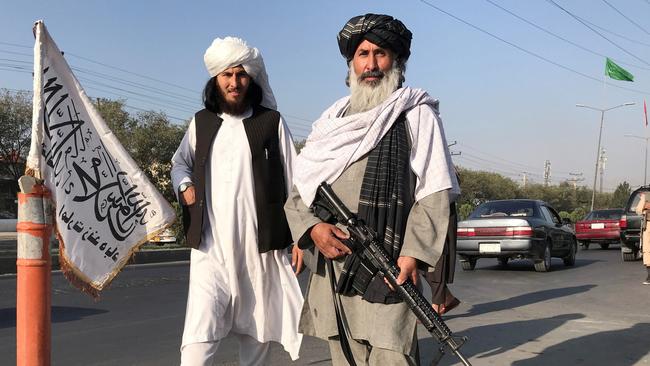Taliban 2.0 will be little different to Taliban 1.0

The endgame in Afghanistan came quicker than anyone had anticipated because Afghans have a well-developed survival instinct. Those who were on the losing side did what they normally do – switched to the winning side, and that had a cascading effect all the way to Kabul.
Reports suggest negotiations are taking place in Kabul between a Taliban delegation and Afghan government officials but they seem unlikely to end in anything less than unconditional surrender by the government. At the same time, organised evacuations are continuing from Kabul international airport without interference from the Taliban.
However, for Afghans the door firmly will be shut soon on what Australians regard as a normal lifestyle. For those of us who served in Vietnam, the situation in Kabul is eerily reminiscent of the fall of Saigon in 1975.
Now that the Taliban has won the war, will Taliban 2.0 be much different from Taliban 1.0 in 2001? Well, it’s still a Pashtun organisation run by Sunni religious zealots. Pashtuns comprise 42 per cent of the Afghan population and once again will dominate Afghanistan. Back in 2001 at the height of its power, the Taliban controlled 75 per cent of the country. That’s probably about what it controls now. Taliban 2.0 almost certainly will govern in accordance with Koranic interpretations, as it did before.
The Taliban’s Doha negotiators told the Americans what they wanted to hear about protecting human rights in Afghanistan, but Taliban commanders on the ground have a more fundamental interpretation of what life will be like in Taliban-controlled areas.
The outlook is particularly bleak for female Afghans. One Taliban commander who was liberal enough to talk to a female SBS reporter said the Taliban was not opposed to female education provided it was at schools run by female teachers and education did not extend beyond the ages of 12 or 13.
Unmarried women will not be allowed out of the house unless accompanied by a male relative and they will be expected to cover themselves up or risk a flogging by religious police. They will marry the man they’re told to marry. Those accused of adultery may be stoned to death.
The Taliban commander said punishments would be administered according to the Koran. Under Islamic law, hudud crimes (apostasy, revolt against the ruler, theft, adultery, slander and drinking alcohol) carry penalties that include amputation of hands and feet, flogging and death.
There would have been an exodus from Westernised Kabul already if that had been possible, but most residents didn’t have the means to leave. That included large numbers of displaced people trapped there after fleeing from other parts of the country. To get to a neighbouring country they would have had to pass through areas and border crossings controlled by the Taliban.
Furthermore, the nearest country, Pakistan, was not a practical destination because bordering areas of Pakistan are also controlled by the Taliban. Pakistan supports the Taliban because it wants to exclude India from playing any part in Afghanistan. Pakistan also has its own hard-to-manage Pashtun population of 25 million (compared with 11 million Pashtun in Afghanistan).
That means the only safe way out of Kabul was – and is – by air. Wealthy Afghans will have headed to the United Arab Emirates already. When I worked in Afghanistan in 2009 and 2012 that was where the political elite deposited their corrupt money and bought property. Dubai is just under three hours by air from Kabul, or slightly more than Melbourne to Brisbane. Most Afghan politicians who are not Pashtun and have no ties to the Taliban likely will leave Afghanistan or return to areas of the country not under Taliban control.
The big losers in a future Afghanistan will be middle-class educated women, girls, members of the Afghan special forces, Shia Hazaras and those who worked for Western security agencies. While rank-and-file members of the Afghan National Security Forces (the Afghan National Army, Afghan Air Force, Afghan National Police, Afghan Local Police and National Directorate of Security) will probably have switched sides safely, that’s unlikely to be the case for officers.
We already have seen field executions of highly trained Afghan special forces that had surrendered to the Taliban, and their situation is particularly dire. They probably will have little option but to go down fighting.
For most Afghans, Taliban control will mean a return to what people in the West would regard as a medieval lifestyle. In many parts of the country there will be a continuation of the fighting for local control that has gone on in rural Afghanistan since time immemorial. Few of the trappings of liberal democracy will survive in a Taliban-controlled Afghanistan.
The US threatened to shun a Taliban government that took over by force, but that’s unlikely to bother the Taliban. Pakistan, Russia and China eagerly are waiting in the wings to move in and do business with a future Taliban government. (Afghanistan is rich in mineral resources including copper, iron, sulphur, bauxite, lithium and rare-earth elements.)
The only good news is that Taliban 2.0 has little time for terrorist groups Islamic State and al-Qa’ida, and whatever happens in Afghanistan after US withdrawal is unlikely to have security implications for Australia.
Clive Williams is a visiting professor at the Australian National University’s Centre for Military and Security Law, and Strategic and Defence Studies Centre.

